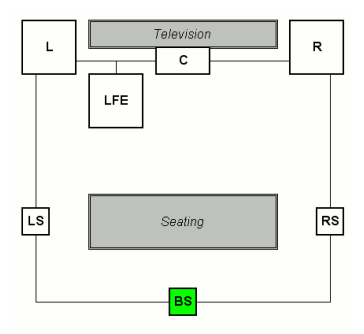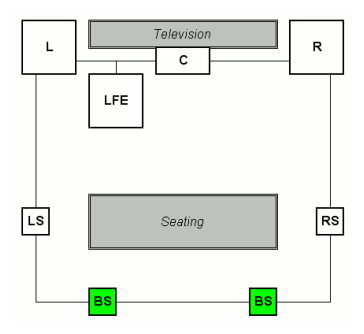Matrix Surround
Although the surround sound systems that make use of a Back Surround Channel all use discrete surround encoding, typically the Back Surround Channel is actually Matrix Surround composited from the left surround and right surround channels. Although this isn't the optimal method for creating the Back Surround Channel signal, it's completely backwards compatible with 5.1 surround systems, which simply decode the 5 existing channels.
Although it would be possible for future surround sound advancements to include standardizing six or more full range channels (6.1 surround) or more, this seems extremely unlikely to happen for a number of reasons. To begin with it's unlikely that consumers would embrace the idea of buying and figuring out where to put even more speakers than the five they already have. In addition, since high resolution audio, like what's typically used on Blu-ray and HD DVD has a bitrate too high for standard digital audio connections it must rely on analog connections instead. The existing standard for this type of analog support in receivers is six channels. While adding channels via digital connection is relatively simple, additional analog channels require new hardware.
In the diagram below the Back Surround Channel is highlighed in green. Notice that the Left Surround and Right Surround speakers have been relocated to the sides of the listeners.

More than one speaker can be used for the Back Surround Channel, as in a typical 7.1 surround sound configuration.

